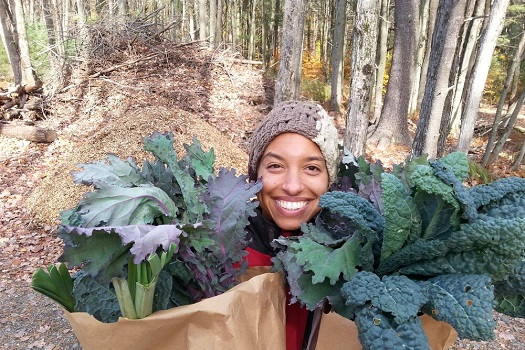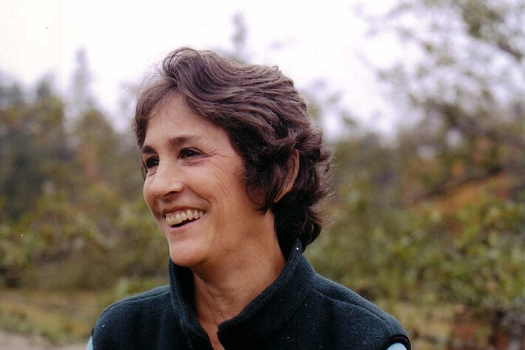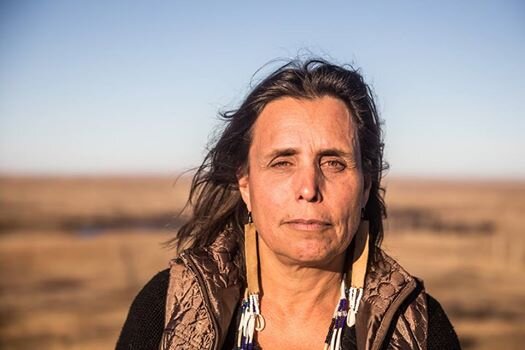2020 Fair Schedule & Keynotes
Fair Schedule
The 2020 Common Ground Country Fair will be presented as a Livestream over the weekend of the fair. The Livestream will be available on this website, on facebook, and on youtube. We hope that the audience will engage with our live presenters by asking questions via chat on those forums.
Take a look at the schedule below, and make a plan for tuning in to the Livestream September 25-27th.
Friday September 25, 2020
- 9:00AM Welcome and Introduction to the Online Fair: Sarah Alexander, MOFGA
- 9:30AM Garlic Planting Demonstration: Mark Guzzi, Peacemeal Farm
- 10:00AM Perennial Polyculture Design & Farm Tour: Jesse Watson, Midcoast Permaculture Design
- 11:00AM Keynote Farming While Black: African Diasporic Wisdom for Farming and Food Justice: Leah Penniman, Soulfire Farm
- 12:00PM Working with Sheep Dogs: Dave & Colin Kennard, Wellscroft Fence Systems
- 1:00PM Apple Identification 101: John Bunker, Super Chilly Farm
- 2:00PM Making and Using Apple Cider Vinegar: Bob Sewall & Kate Wallace, Sewall Orchard and The Resilience Hub
- 3:00PM The 10 Biggest Mistakes Woodland Owners Make: Tom Doak, Maine Woodland Owners
- 4:00PM Invasive Plants of Maine: Nancy Olmstead, Maine Natural Areas Program
- 4:30PM Baking Common Ground Whole Grain Bread: Dusty Dowse, Maine Grain Alliance, Bread Coordinator, Lammastide Bakery
- 5:00PM Fix-a-flat: Hands on Flat Bicycle Tire Repair: Fred Robie, Fair Bicycle Area Coordinator, Bicycle Coalition of Maine
- 5:30PM Cabin Fever Dream EP Release Performance & Waldo County Bounty: Sara Trunzo, Musician
- 5:50PM Thank you & preview of evening entertainment: Sarah Alexander, MOFGA
- 6:00PM Local Music Showcase
- 8:00PM Goodnight, See you tomorrow!
Sunday September 27, 2020
- 9:00AM Welcome and Introduction to the Online Fair: Sarah Alexander, MOFGA
- 9:05AM Herbs for Stressful Crazy Times: Deb Soule, Avena Botanicals
- 10:00AM Organic Gardening & Crops Q&A: Caleb Goossen & Eric Sideman of MOFGA and Mark Hutton of UMaine Co-op Ext.
- 11:00AM Keynote Power to the People: Drawing Strength from the Pandemic: Barbara Damrosch, Author and Co-Owner of Four Season Farm
- 12:00PM Working with Sheep Dogs: Dave & Colin Kennard, Wellscroft Fence Systems
- 1:00PM Public Policy Teach-In Panel: Climate Change in Maine – The Problem, the Response and What All of Us Can Do Heather Spalding, MOFGA, Director; Hannah Pingree, Office of Policy Innovation and the Future: Commissioner Amanda Beal, Dept. of Agriculture, Conservation and Forestry and Melissa Law, Bumbleroot Farm
- 2:00PM Tour of Dana Off-Grid Homestead: Sikwani Dana
- 3:00PM Getting the Most Out of Your Greenhouse & Hoophouse Vegetables: Andrew Mefferd, Author and Editor
- 4:00PM Commercial Hybrid Horse Logging and Land Management: Brad Johnson & Derek O’Toole, Third Branch Horse Logging
- 4:30PM Community Solar Farms: John Luft, ReVision Energy
- 5:00PM Steps to Becoming a Certified Organic Producer: Chris Grigsby, MOFGA Certification Services
- 5:30PM MOFGA Baked Beans Make-A-Long: George Sergeant, Patchwork Farm and Sagadahoc MOFGA
- 5:50PM Thank you & preview of evening entertainment: Sarah Alexander, MOFGA
- 6:00PM A Musical Tribute to CGCF from MFC
- 8:00PM Goodnight, See you tomorrow!
Saturday September 26, 2020
- 9:00AM Welcome and Introduction to the Online Fair: Sarah Alexander, MOFGA
- 9:05AM Seed Saving: Will Bonsall, Khadighar Farm
- 10:00AM Simply Sauerkraut Make-A-Long: Wendy Watson, MOFGA
- 11:00AM Keynote Relocalizing and Restoring Traditional Food Varieties: Building a Regional Indigenous and Local Food System: Winona LaDuke, Anishinaabeg Agriculture & Honor the Earth
- 12:00PM Why Work with Sheep Dogs?: John Simmons, Stoneheart Farms
- 1:00PM Waterbath Canning 101: Amy LeBlanc, Whitehill Farm and MOFGA, NOFA, IFOAM member
- 1:30PM Got Chickens, Now What? Basic Chicken Care: Crystal Sands, Sands End Farm
- 2:00PM No-Till Vegetable Production: Daniel Mays, Frith Farm
- 3:00PM Chainsaw Tree Felling Demo: Tim Libby, MOFGA Low Impact Forestry Chair
- 3:30PM Sweet Annie Crown Making: Billi Barker, Fire Fly Farm and Enchanted Kitchen at Fire Fly Farm
- 4:00PM Raising Heritage Pigs for Meat: Mary Thompson, Beans Corner Farm
- 5:00PM Natural Dyeing with Goldenrod: Stacie Beyer, Fair Fleece Speakers Tent Coordinator
- 5:30PM Musical Performance: Inana: Sisters in Rhythm
- 5:50PM Community Closing: Sarah Alexander, MOFGA
Keynotes
We’re thrilled to share the 2020 Common Ground Country Fair Keynote speakers! Each day the Fair will feature a keynote address at 11am.

Leah Penniman
Farming While Black: African Diasporic Wisdom for Farming and Food Justice

Barbara Damrosch
Power to the People: Drawing Strength from the Pandemic

Winona LaDuke
Relocalizing and Restoring Traditional Food Varieties: Building a Regional Indigenous and Local Food System
